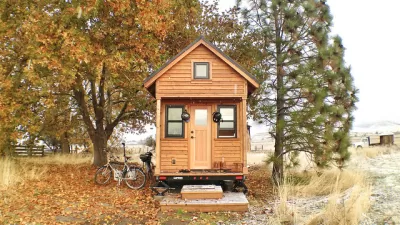New research on the supposedly irrational patterns of behavior by drivers shows that bad driving decisions are predictable.
Transportation planners and engineers are beginning to draw upon psychological experiments cataloguing irrational patterns of behavior-as well as their own experience about real world travel-to find creative ways to discourage roadway antics and other bad travel choices and improve infrastructure design.
Their efforts are part of a wider movement by the new academic discipline of behavioral economics, established in the early 1990s, which is exploring how to factor "the human factor" into the computer models and decision processes used in financial markets, the transportation sector and other fields. There are tantalizing indications these efforts to understand and harness the quirks of human nature can help speed progress towards improved safety, energy efficiency, reduced carbon emissions and achievement of other goals.
Thanks to S. Hague
FULL STORY: Behavioral Economics Offers Insights and Strategies for Improving Transportation

Planetizen Federal Action Tracker
A weekly monitor of how Trump’s orders and actions are impacting planners and planning in America.

Maui's Vacation Rental Debate Turns Ugly
Verbal attacks, misinformation campaigns and fistfights plague a high-stakes debate to convert thousands of vacation rentals into long-term housing.

Restaurant Patios Were a Pandemic Win — Why Were They so Hard to Keep?
Social distancing requirements and changes in travel patterns prompted cities to pilot new uses for street and sidewalk space. Then it got complicated.

In California Battle of Housing vs. Environment, Housing Just Won
A new state law significantly limits the power of CEQA, an environmental review law that served as a powerful tool for blocking new development.

Boulder Eliminates Parking Minimums Citywide
Officials estimate the cost of building a single underground parking space at up to $100,000.

Orange County, Florida Adopts Largest US “Sprawl Repair” Code
The ‘Orange Code’ seeks to rectify decades of sprawl-inducing, car-oriented development.
Urban Design for Planners 1: Software Tools
This six-course series explores essential urban design concepts using open source software and equips planners with the tools they need to participate fully in the urban design process.
Planning for Universal Design
Learn the tools for implementing Universal Design in planning regulations.
Heyer Gruel & Associates PA
JM Goldson LLC
Custer County Colorado
City of Camden Redevelopment Agency
City of Astoria
Transportation Research & Education Center (TREC) at Portland State University
Jefferson Parish Government
Camden Redevelopment Agency
City of Claremont



























